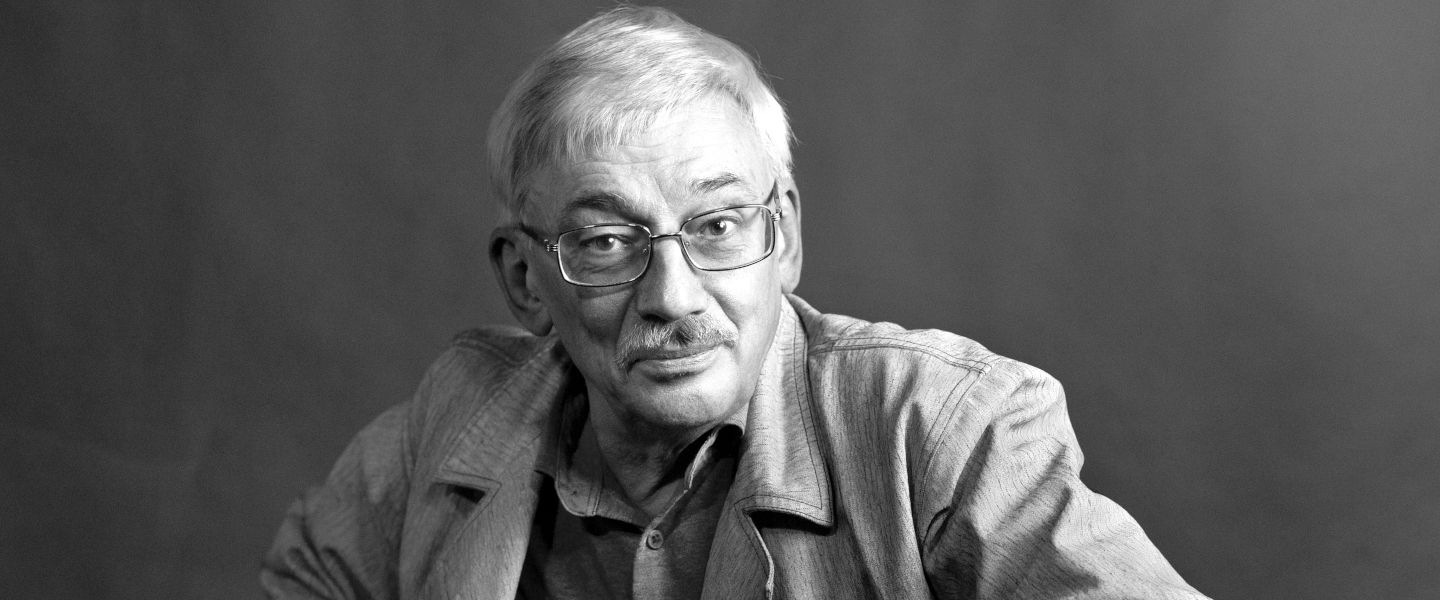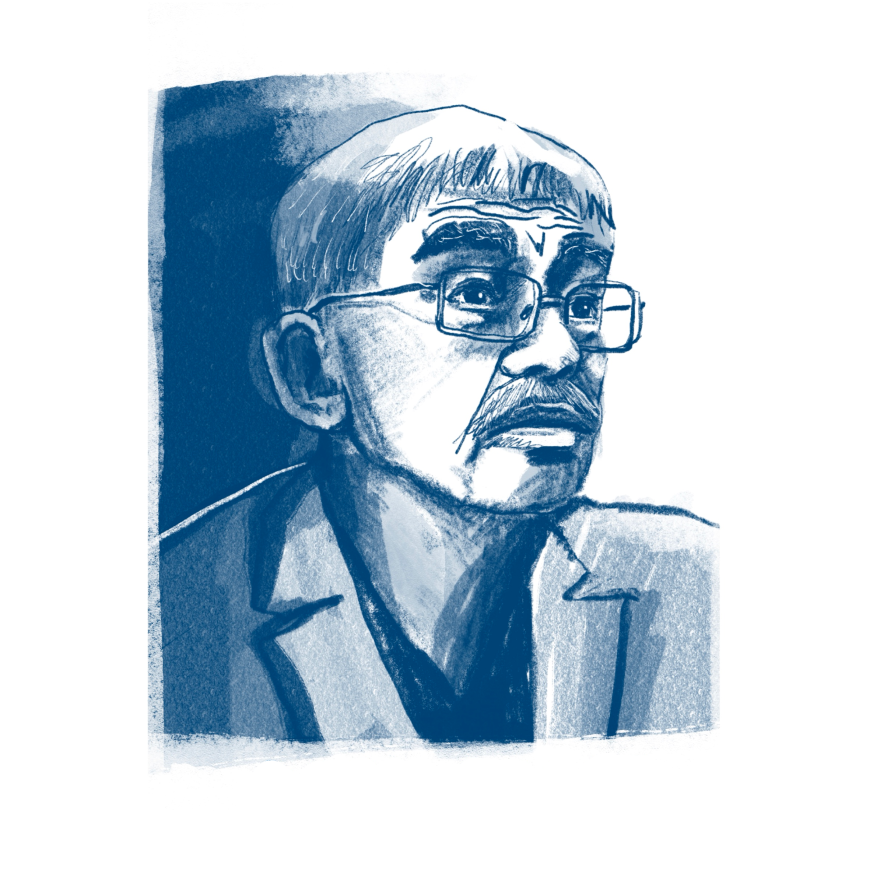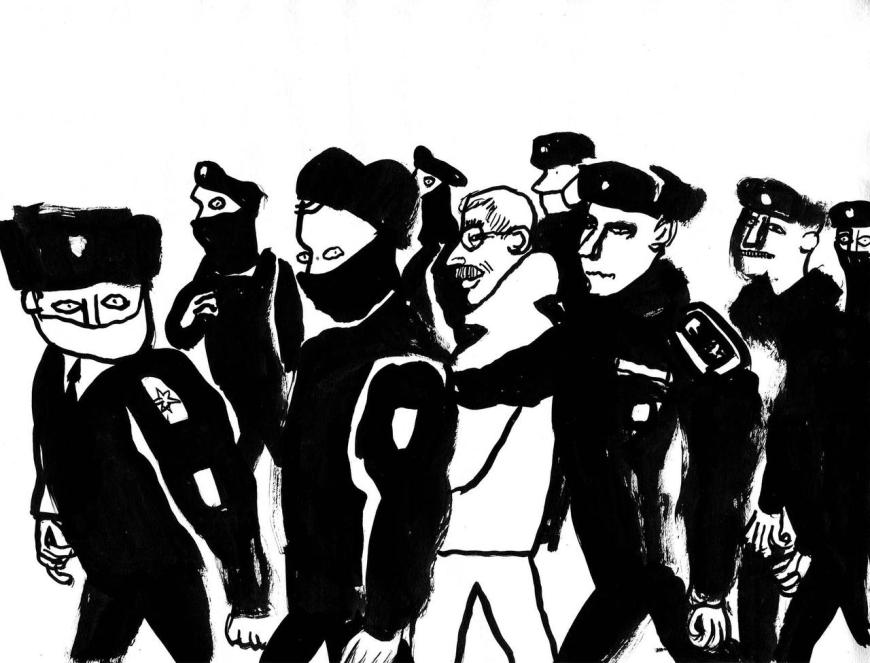published: 4 June 2024

The Case of Oleg Orlov
Oleg Petrovich Orlov, a human rights activist and one of the founders of Memorial, was imprisoned from February 27 to August 1, 2024. He was sentenced to two and a half years in prison for an article in which he called the current Russian regime fascist. Orlov was released in the prisoner swap between Russia and Belarus and Western countries.
About Oleg Orlov
Oleg Petrovich Orlov is one of Russia's most prominent and respected human rights defenders. Born in Moscow in 1953, Orlov is a biologist by training and a graduate of Moscow State University. He first worked in a research institute before becoming involved in political activism in the late 1970s.

In 1988, Oleg Petrovich was one of the first members of the Memorial initiative group. After the group was formalized into an organization, he became a board member and coordinator of the election committee. In 1996, he became chairman of the Memorial Human Rights Center, a position he held until 2012. During this period, Orlov traveled as an observer to armed conflict zones in Nagorno-Karabakh, Transnistria, Tajikistan and Chechnya. In 1995, during the seizure of a hospital in Budennovsk (southern Russia), Oleg Petrovich took part in negotiations with armed Chechen groups holding hostages, as a member of Sergei Kovalev's delegation and, together with other negotiators, volunteered to become himself a hostage.
From 2004 to 2006, Orlov was a member of the Presidential Human Rights Council, but resigned in protest of Vladimir Putin's cynical statement on the murder of the journalist Anna Politkovskaya. In the late 2000s and early 2010s, he was a member of the Federal Political Council of the Solidarity movement. Oleg Orlov was awarded the Andrei Sakharov Prize for Freedom of Thought in 2009 and the Moscow Helsinki Group Prize in 2012.
The 2023 criminal case against him was not the first attempt to silence Orlov.
In November 2007, shortly after Memorial published an incisive report titled "Ingushetia - 2007. What Next?", Orlov and journalists from the Ren TV channel were kidnapped and beaten by unidentified assailants while on assignment in Nazran, in the Northern Caucasus. The law enforcement’s response was defiantly negligent, and the perpetrators were never found. Orlov was convinced that the kidnapping was organized by the Ingush authorities and provided evidence to support this claim. In 2017, the European Court of Human Rights ruled that Orlov's rights had been violated during the investigation and ordered compensation for him.
In 2009, Orlov publicly accused the Chechen dictator Ramzan Kadyrov of being responsible for the murder of human rights activist Natalya Estemirova. Kadyrov filed a civil defamation lawsuit against Memorial and Orlov, which was partially settled. Shortly thereafter, in July 2010, Orlov was charged with the same offense, but the court acquitted him on the criminal charge. The case did not reach an appellation hearing due to the decriminalization of defamation.
The Case of "Discrediting the Army"
In the spring of 2022, Oleg Orlov regularly protested against the war in Ukraine, and each time he was arrested. The courts fined him seven times for these actions, twice under Part 1 of Article 20.3.3 of the Administrative Code of the Russian Federation (“Public actions aimed at discrediting the use of the Russian armed forces”). The law allows those who have already been held administratively liable under this article and have committed “a similar act” within one year of the verdict to be punished criminally – under Article 280.3 of the Criminal Code of the Russian Federation.
On November 14, 2022, Oleg Orlov published on Facebook a Russian translation of an article he had written for the French magazine Mediapart. The text is entitled "They wanted fascism. And they got it". Here are some excerpts:
The bloody war unleashed by the Putin regime in Ukraine is not only the mass murder of people, the destruction of the infrastructure, economy and cultural heritage of this wonderful country. It is not only the destruction of the foundations of international law.
It is also a serious blow to the future of Russia. <...>
Now they can openly proclaim the slogan: "One nation, one empire, one leader!" All shame has been cast aside.
They wanted fascism, and they got it.
The country that turned away from communist totalitarianism thirty years ago has slipped back into totalitarianism, but now it's fascist.
On March 21, 2023, law enforcement officials searched the homes of Orlov and of eight other members of Memorial. Orlov was interrogated and charged under Criminal Article 280.3 for repeatedly "discrediting" the army. He did not admit guilt, although he confirmed that he was the author of an article expressing his private opinion about events in Russia and the world.
The trial of Oleg Orlov was scheduled to begin in June 2023 at the Golovinsky Court in Moscow, but it was repeatedly delayed.
During the hearing, prosecutor Svetlana Kuldisheva requested that Orlov undergo a psychiatric evaluation, noting "a heightened sense of justice and a complete lack of self-preservation instinct."
When the court rejected this request, the prosecution asked that the human rights defender be found guilty and sentenced to a fine of 250,000 rubles. The defense insisted on Orlov's complete acquittal.
On October 11, 2023, Judge Christina Kostryukova of the Golovinsky Court found Oleg Petrovich guilty and imposed a fine of 150,000 rubles as punishment. The verdict was appealed by both sides, with the prosecution requesting that the motive of "political and ideological hatred of the state authorities of the Russian Federation" be taken into account. And in December, Moscow City Court Judge Svetlana Kupriyanova overturned the first-instance court's decision and sent the case back to the prosecutor's office.
The investigation quickly filed a new indictment, accusing Orlov of "ideological hostility to traditional Russian spiritual, moral and patriotic values and hatred of the social group 'members of the Armed Forces of the Russian Federation'". At the same time, on February 2, the Ministry of Justice of the Russian Federation added him to the list of "foreign agents". In the official commentary to the decision, the Ministry noted that Orlov
"opposed the actions of Russian troops in Ukraine and spread misleading information about the policy of the Russian authorities".
The retrial of the case in the Golovinsky court began on February 16, 2024. Referring to the experience of Soviet dissidents, Oleg Orlov refused to participate in the unjust trial – to defend himself, to answer the questions of the court and the prosecution, to call witnesses and defense experts (and forbade his lawyer to do so). He retained only the right to say a last word. During court sessions he read Franz Kafka's novel "The Trial".
On February 27, 2024, Judge Elena Sergeevna Astakhova pronounced a guilty verdict: 2 years and 6 months in a general regime penal colony. Oleg Orlov was taken into custody in the courtroom.
Here is an excerpt from Orlov’s final statement at the second trial:
I committed no crime. I am on trial for a newspaper article in which I called the political regime in Russia totalitarian and fascist. The article was written over a year ago, and at the time some people I knew seemed to think I was exaggerating.
But now it is quite obvious – I did not exaggerate at all. The state in our country is once again controlling not only public, political, and economic life, but is also claiming full control over culture and scientific thought, and is invading private life. It becomes all-encompassing.
While appellation hearing was still pending, Oleg Orlov was transferred from Moscow to Syzran on the Volga river. He was not present at the hearing and only joined via videoconferencing. On July 11, judge Maria Larkina confirmed the original verdict.
Oleg Orlov was included in the list of 16 prisoners in Russia and Belarus for a swap with several Western countries. He was pardoned by Vladimir Putin. Like other prisoners who were part of the swap, Orlov did not appeal for pardon or admit a crime; the swap was, according to him, a complete surprise.
On August 1, 2024, Orlov and other prisoners on the list were taken by plane to Ankara and swapped to several Russian citizens who were sentenced to prison for espionage and various crimes.
Political motive in the case
Article 280.3, together with other amendments establishing liability for calls for sanctions and "spreading fakes" about the Russian army, was introduced into the Criminal Code in a hurried fashion: it took less than two days from the introduction of the text in the State Duma to the entry into force.
This article, which openly restricts freedom of speech and opinion, contradicts the Russian Constitution (at least its Articles 19, 28, and 29), the international obligations of the Russian Federation to respect human rights, and the basic principles of law, because it allows repeated prosecution for the same act.
Significantly, the court did not identify specific "discrediting" statements, nor did it define the concept of "discrediting" itself, which is not defined in any way in the law (it had previously appeared in Russian legislation only in the context of economic competition). The court also failed to clarify the grounds on which an opinion can be recognized as false and how a "true opinion" should be determined. Finally, as in other cases under Article 280.3, the prosecution did not prove that the use of the Russian Army was "for the purpose of protecting the interests of the Russian Federation and its citizens, maintaining international peace and security," as stated in the text of the law.
The human rights project "Support for Political Prisoners. Memorial" considers any prosecution under Article 280.3 to be unlawful, but points to other serious violations of Orlov's rights . For example, his defense counsel in the first trial, Nobel Peace Prize laureate Dmitry Muratov, was not allowed to participate in the second trial, which is contrary to the Criminal Procedure Code of the Russian Federation, and the appointment of additional experts and questioning of new witnesses in such cases under reconsideration is inadmissible according to the decisions of the Supreme Court of the Russian Federation.
As for the expert opinions commissioned by the investigation, they were conducted at an extremely low professional level, and their authors lacked the relevant competencies. The Memorial Human Rights Defense Center has published detailed reviews of the expert opinions from the first and second trials.

Where to find out more about Oleg Orlov
- Episode of the Memorial's podcast "Solitary Protest" with Oleg Orlov's story of how he protested the war in Afghanistan in the winter of 1983 (in English)
- "Throw everything into a black bag". Oleg Orlov's interview with Katerina Gordeeva (English subtitles available)
- The Return of Repression. Documentary about Oleg Orlov by Radio Liberty's "Signs of Life" project (French and Italian subtitles available)
